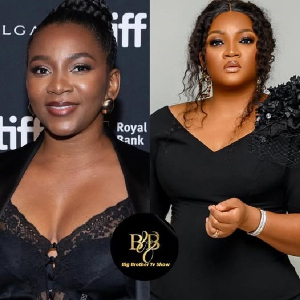The Federal High Court in Asaba, Delta State, on Tuesday, sentenced some Nigerian drug barons and their Mexican conspirators to 10 years in jail.
The judge, Okon Abang, descended heavily on the National Drugs Law Enforcement Agency (NDLEA) for entering into a plea agreement to secure less jail time for the convicts.
Mr Abang described their offences as crimes against humanity.
The convicts were all caught in March 2016 at a “clandestine” laboratory in Asaba, Delta State, where they were producing a cocaine-like substance – methamphetamine.
NDLEA had also led evidence showing they were operating a drug trafficking organisation.
They include five Nigerians – Anthony Umolu, Chibi Aruh, Izuchukwu Anieto, Williams Agusi and Augustine Umolu – who engaged their four internationally-wanted Mexican conspirators to help them to set up the secret laboratory.
The Mexicans are Cervantes Bruno, Rivas Pasiano, Castillo Cristobal and Partida Pedro, who are known to be part of a large cartel of drug traffickers with tentacles spread around the world.
The NDLEA, shortly after arresting the defendants in 2016, charged them with offences that attracted between 10 and 15 years in jail.
But after six years of trial with 21 witnesses called to testify in the case, NDLEA entered a plea agreement with the convicts in June.
The agreement proposed a 10 years jail term that would be backdated by six years for the defendants.
Mr Abang, in his judgement on Tuesday, described the agreement as “unreasonable”, “perverse” and “ill-motivated”.
He said NDLEA signed the agreement unmindful of the gravity of the impact of illicit drugs on society and the scarce resources the government had deployed in prosecuting the case over the years.
He said the prosecution was insensitive to the plight of members of the Nigerian public being regularly traumatised by violent crimes such as kidnapping and terrorism perpetrated by criminals under the influence of drugs.
He said, “drug production and trafficking is an endemic that has eaten deep into the fabric of the Nigerian society and needs urgent diagnosis for immediate treatment.”
PREMIUM TIMES reported that, although the judge adopted the proposed 10 years’ imprisonment, he refused to backdate the sentence by six years. He, rather, ordered that the jail time should start counting from Tuesday.
He also exposed how NDLEA under-disclosed some landed assets seized from the convicts in Abuja as well as Lagos, Anambra and Ogun States.
The assets were not excluded from the list presented to the court to order their forfeiture to the federal government.
But the NDLEA denied concealing any assets recovered from the convicts in an interview with PREMIUM TIMES on Friday.
Before reading his judgement on Tuesday, the judge took over 30 minutes to drill the prosecuting lawyer, Umar Husseini, representing the NDLEA and the defence lawyers on the legality, morality, reasonableness and implications of the plea agreement for Nigeria.
The defence lawyers, who took their turns to address the judge were Kalu Onwuchekwa representing the 1st and 9th defendants (Anthony Umolu and Augustine Umolu).
G.O. Onyeka represented the 2nd defendant (Chibi Aruh).
I.U Uchechukwu represented the 3rd and 8th defendants (Izuchukwu Anieto and Williams Agusi).
Victor Igbuche represented the 4th to the 7th defendants (the Mexicans – Cervantes Bruno, Rivas Pasiano, Castillo Cristobal and Partida Pedro).
The question and answer session is reproduced below:
The prosecutor representing the NDLEA, Umar Husseini, was the first to be drilled by the judge.
Judge: Did the prosecution comply with the provision of Section 270(2)(a) of the Administration of Criminal Justice Act (ACJA)?
Prosecutor: Yes, the prosecution complied with the provision of section 270(2)(a) of ACJA.
Judge: Was the evidence not sufficient to secure the conviction of the defendants?
Prosecutor: There are other conditions listed under section 270(2)(a) of the law.
Judge: What of the conditions in subsection 2(a)? Did the defendants cooperate with investigations?
Prosecutor: The defendants have been attending their trial.
The process started before I even stepped into the matter. But I have to continue where my colleague stopped.
Judge: Did you look at section 2(a) very well?
Prosecutor: The authority must have had a reasonable belief that the agreement was in the interest of the general public.
Judge: Interest of the public after calling 21 witnesses?
Prosecutor: As the court pleases. Myself as a person, I cannot singlehandedly approve and file this plea agreement.
Thank you, my lord.
The judge shifts attention to Kalu Onwuchekwa, the counsel for the 1st and 9th defendants. He is referred to as Defence Lawyer 1 here:
Judge: Counsel for the 1st and 9th defendants.
Defence Lawyer 1: This is a trial that commenced in 2016. Six years after, the prosecution has not closed its case. The defendants have almost stayed the period of their sentence while awaiting trial. Resources have been spent – judicial time and scarce funds have been spent to fund this trial.
The best option at this point would be this plea bargain entered into between the defendants and the federal government.
Judge: Why did you not enter into the plea agreement in 2016? Why now?
Defence Lawyer 1: We made frantic efforts in that regard.
Judge: The defendants objected to the admissibility of all documents and every piece of evidence led by the prosecution. They even filed appeal for bail and filed petitions against the court.
Defence Lawyer 1: I appealed to Mr Lambert, who commenced the prosecution of this case, and made an overture to the office to let us have this plea bargain, but it kept lingering. At every opportunity, we appealed for a plea bargain, until this point.
Judge: Is the charge an offence which a plea agreement can be entered into by parties in respect of?
Defence Lawyer 1: Yes, my lord.
Judge: Who is the victim of the alleged crimes? Is it the federal government, the Attorney-General of the Federation, the public or who?
Defence Lawyer 1: The victim of crime is not a nominal person.
Judge: The victim of crime is not a nominal person, right?
Defence Lawyer 1: Yes sir.
The essence of a plea bargain is to get something for society. The defendants in the instant case have forgone their properties which are listed in the agreement.
Judge: What of the public? What does the public gain?
Defence Lawyer 1: The money the defendants are forfeiting will be used as restitution.
Judge: What about the public that is traumatised by those who use drugs, for example, people that are into kidnapping, terrorism, banditry and other violent crimes? People don’t commit those crimes without being under the influence of drugs.
Defence Lawyer 1: (Laughs). My lord, I would not know what propelled them into kidnapping, since I have never been involved in it.
Judge: If you want me to put a judicial seal on this agreement, the court needs to hear from you.
Defence Lawyer 1: I believe the NDLEA runs jingles for public sensitisation and enlightenment about illicit drugs. They also have rehabilitation programmes for drug users. I believe that the money forfeited by the defendants can be used for those initiatives. It is not going to be enough, but it is the defendants’ little way to aid the institution.
The defendants have learnt their lessons, having been incarcerated for long, and they are remorseful.
Judge: Which law confers judicial power on parties to agree on the terms the defendants are to be sentenced to?
Defence Lawyer 1: Parties can agree on jail terms the defendants are to serve.
Judge: Why not leave that to the court?
Defence Lawyer 1: Even at this point, we are not imposing anything on the court.
This is as much as the defendants are remorseful. They should also know that it is not an easy path to toe.
I pray the court to look at the sacrifices they have made. And they have conducted themselves responsibly during this trial.
(Judge cuts in)
Judge: But they opposed the admissibility of documents at every stage of this trial.
The judge calls on G.O Onyeka, the 2nd defendant’s lawyer’s submissions. The lawyer is referred to as Defence Lawyer 2 here:
Defence Lawyer 2: A plea bargain is a negotiated agreement between the prosecution and the defence in a situation whereby the defendant will agree to a lesser punishment.
Judge: This is an offence against humanity.
Defence Lawyer 2: Any offence is an offence against humanity.
Once parties are satisfied with the terms of the agreement that becomes the position.
(He cites the case of FRN vs Igbinedion)
It is a case of plea bargain.
Judge: Was the case about illicit drugs?
Defence Lawyer 2: It was a case of money laundering.
The plea bargain came before the defendant could enter the defence.
(Reads section 272(2)(a) of the Administration of Criminal Justice Act)
What section 272(2)(a) says is that parties can enter into a plea agreement before the prosecution closes its case. The prosecution has not closed its case, so this plea agreement is timely.
Judge: So the plea agreement is binding on the court?
Defence Lawyer 2: No, sir. We are not imposing anything on the court.
I pray the court to uphold or affirm the plea agreement application.
The lawyer to the 3rd and 8th defendants, I.U Uchechukwu (Defence Lawyer 3) to address the court.
Defence Lawyer 3: In a plea agreement, the court does not look at the monetary gain or reward of the state alone, but will also look at the repentant nature of the defendants.
The lawyer to the 4th to the 7th defendants (the four Mexicans), Victor Igbuche (Defence Lawyer 4), addresses the judge.
Defence Lawyer 4: I am happy to say I am happy to hear this court say something about the community we are in.
The defendants are all fathers, brothers, and so on. These men have been on this trial for six years.
Judge: Why did they not plead guilty earlier?
Defence Lawyer 4: They made a mistake, but now they are ready to make amends. They are ready to come clean.
Judge: After 21 witnesses?
Defence Lawyer 4: If the representatives of the state have deemed it right, they can enter into a plea bargain.
On the issue of sentence, I will like to refer the court to section 270(4) of ACJA.
What we have in the plea bargain agreement is merely a suggestion to the court. We would be urging the court to endorse the terms agreed upon by the parties.
After Mr Igbuche’s submission, the judge proceeded to deliver his judgement in which he jailed the defendants 10 years.
General News of Sunday, 11 December 2022
Source: www.premiumtimesng.com













